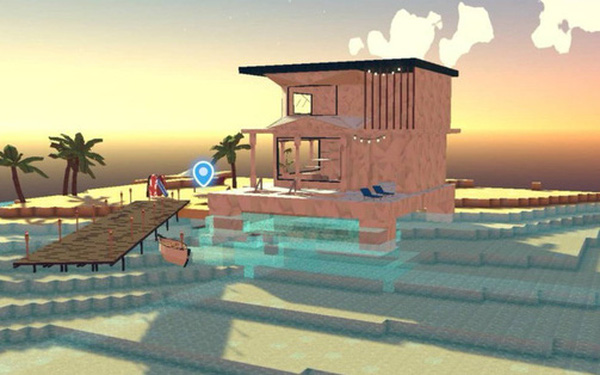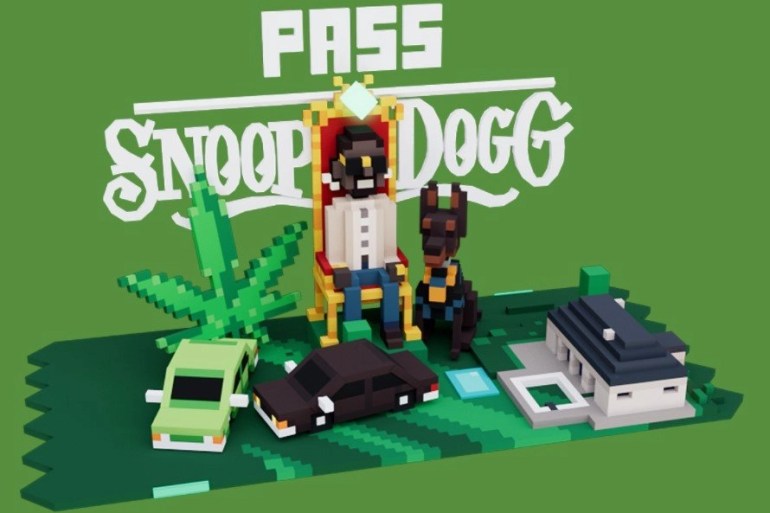Land fever “unreal”
It’s no secret that the real estate market has skyrocketed, but the Covid-19 pandemic has created another land fever that few people know about. Indeed, some investors are paying millions for plots that are neither in New York nor in Beverly Hills. These plots of land are practically non-existent in real life.
Instead, these lands are located online, in a collection of virtual worlds that tech insiders call the metaverse. The price of land plots has increased by as much as 500% in the past few months, since Facebook announced it would go all-in on virtual reality. Even Mark Zuckerberg’s company changed its name to Meta Platforms.

Andrew Kiguel, CEO of Toronto-based Tokens.com, which specializes in investing in metaverse real estate and NFT-related digital assets, said: “Metaverse is the serial iteration of the social network. You can go to a festival, go to a concert, or visit a museum.”
In this virtual world, real people interact with each other as cartoon characters called avatars, similar to a video game where many people are playing at the same time in real time. Currently, people can access the virtual world through normal computers. But Meta and other companies have a long-term vision of an immersive world that people will access through virtual reality glasses.
A recent report that crypto asset manager Grayscale estimated, the virtual world could grow into a $1 trillion business in the near future.
Here, major artists, including Justin Bieber, Ariana Grande and DJ Marshmello, perform through their avatars. DJ Paris Hilton even held a New Year’s Eve party on her own virtual island.
Kiguel’s company recently invested nearly $2.5 million in a piece of land in Decentraland, one of the popular metaverse virtual universes. Kiguel said the price of virtual land has increased by 400-500% in the past few months.
Another metaverse virtual universe also in the land craze is Sandbox, where Janine Yorio’s virtual real estate development company spent a record amount of $ 4.3 million on a virtual plot of land.
Talking to CNBC, Yorio said her company sold 100 virtual private islands in 2021 for $15,000 each. “Right now, the company is selling each island for about $300,000, which is about the same as the median home price in the US,” Yorio said.

Someone paid $45,000 to be Snopp Dogg’s neighbor in the metaverse.
Risky investment
Miami-based real estate broker Oren Alexander told CNBC: “For some people, the virtual world is just as important as the real world. It’s not what you believe it to be, but what it is. what will happen in the future”.
Kiguel says that just like real-life real estate, three things are important in the metaverse: location, location, and location. “There are areas when you get into the metaverse that have people congregating there, these areas are definitely worth a lot more than areas that don’t have any events going on.” According to Kiguel, areas where people congregate are often valuable for advertisers and retailers to reach the demographic.
For example, popular rapper Snoop Dogg is building a virtual mansion on a plot of land in the Sandbox. And recently, a user paid $450,000 to be the rapper’s neighbor.
Buying virtual land is quite simple, either directly or through the developer. Investors build on their land and make it interactive.
Janine Yorio, executive director of Republic Realm, warns that investing in virtual land is extremely risky. Virtual land is blockchain-based and highly speculative. Investors should only spend what they are willing to lose for it.
Mark Stapp, professor and dean of the real estate theory and practice department at Arizona State University, concurs: “I wouldn’t put money into virtual land without thinking about losing money. Definitely not. If the land continues as it is, it will most likely become a bubble. You are buying something that has no connection to reality.”
.